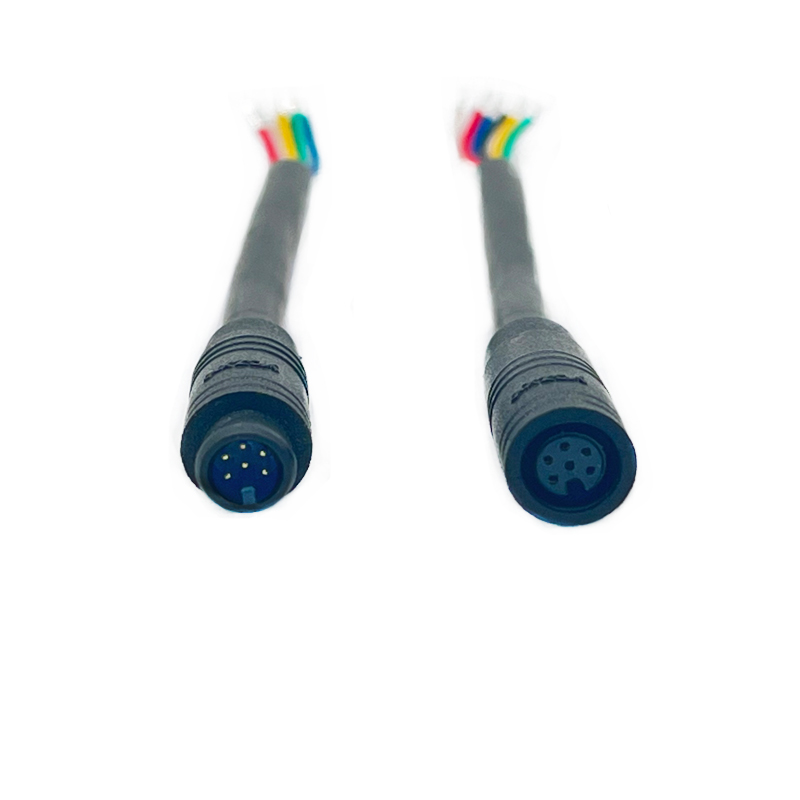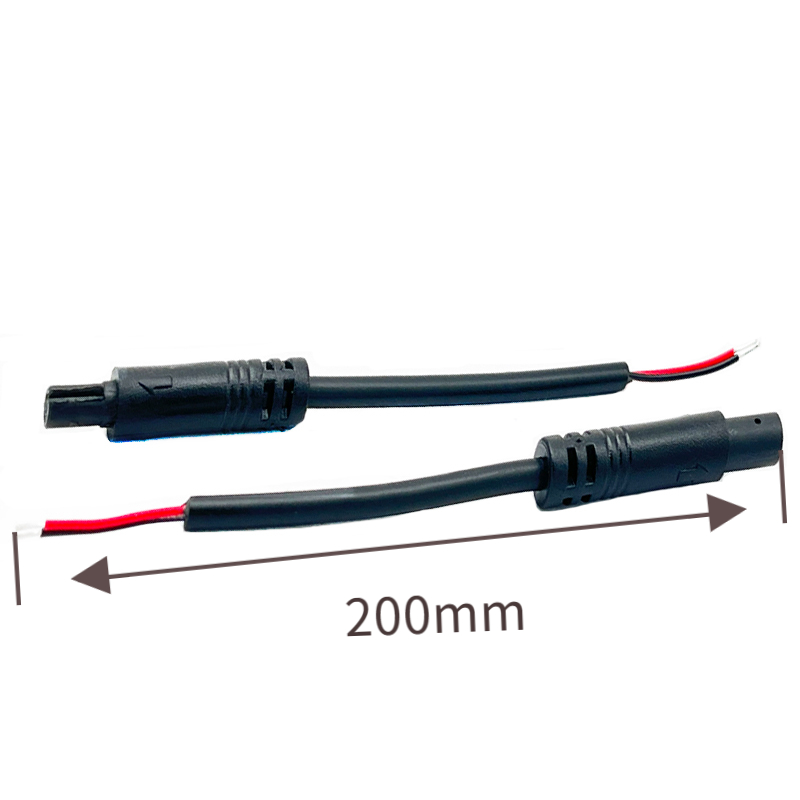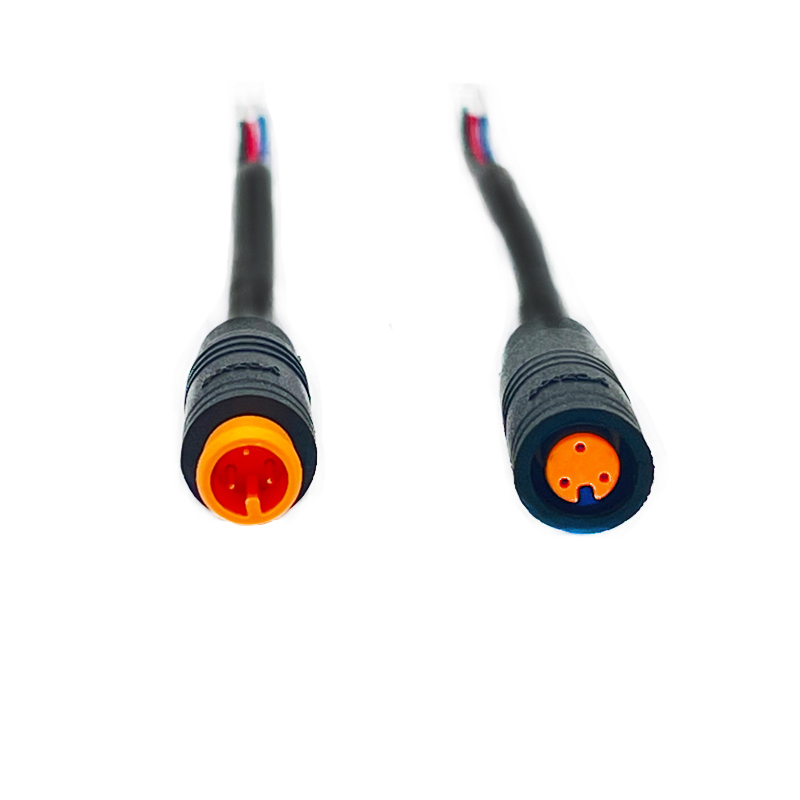News


News

International standard for automotive waterproof wire connectors
Release time:2024-11-27
viewed:547
In the automotive industry, waterproof wire connectors as an important part of the interface of electronic equipment, bearing the connection, transmission of data and power and protection of electronic equipment and other key functions. With the continuous improvement of automobile intelligence and electrification, the importance of waterproof wire connectors has become increasingly prominent. In order to ensure the quality and safety of these connectors, a series of standards and certification requirements have been developed internationally.

1. ISO standards
ISO (International Organization for Standardization) has developed a number of standards related to electrical equipment and connectors, of which ISO 20653 is a standard specifically for the level of protection (IP code) of electrical equipment for road vehicles. ISO 20653 specifies the level of protection of electrical equipment against foreign objects, water and contact, with IP level being the most commonly used representation.
The IP rating is composed of two numbers, the first number indicates the dust rating, the second number indicates the water rating. For example, IP67 means that the connector is protected from complete dust (level 6) and short periods of water (level 7). The specific waterproof level is defined as follows:
IPX0: No protection
IPX1: prevents water droplets from dripping vertically
IPX2: Tilt 15 degrees still prevent water intrusion
IPX3: prevents injection of water
IPX4: Prevents splashing water intrusion
IPX5: Prevents water intrusion from large waves
IPX6: Prevent water intrusion of large waves (electrical equipment intrusion into water under certain conditions of time or water pressure can still ensure the normal operation of the equipment)
IPX7: Prevent water intrusion into the water (electrical equipment unlimited submerged water under certain water pressure conditions, still can ensure the normal operation of the equipment)
IPX8: Protection against the effects of sinking (can be sunk in water for a long time under conditions specified by the manufacturer)
For automotive waterproof wire connectors, the common protection level is IP67 or IP68, which means that the connector not only has excellent dust resistance, but also can work normally in a certain depth of water.
2. UL standard
Underwriters Laboratories (UL) is an independent, non-profit third-party product safety testing and certification organization. UL certification is designed to ensure that products meet safety standards in regions such as the United States and Canada.
For waterproof wire connectors, UL certification focuses on their electrical safety and waterproof performance. UL certified connectors are subject to rigorous testing during the design and manufacturing process, including but not limited to:
Electrical strength test: Verify the electrical strength of the connector at rated voltage and frequency.
Insulation resistance test: Ensure that the connector has good insulation performance under normal working conditions.
Temperature test: Verify the connector's performance stability at high and low temperatures.
Waterproof test: Simulate the waterproof performance of the connector under different water depths and soaking times.
Connectors that obtain UL certification have a higher reputation and competitiveness in the market, and can more easily gain consumer trust and recognition.
3. IEC standards
The IEC (International Electrotechnical Commission) is the authoritative body for the development of international standards in electrical, electronic and related fields. IEC standards are widely adopted around the world and have important guiding significance for the design and manufacture of electrical equipment and connectors.
IEC 60529 is a standard developed by the IEC for the protection level of enclosures, corresponding to the IP level in ISO 20653. IEC 60529 specifies in detail the dust and water resistance levels of electrical equipment, providing clear test methods and evaluation criteria for connector manufacturers.
In addition, IEC has developed several standards related to connectors, such as IEC 60320 (connectors and accessories for household and similar appliances) and IEC 61076 (dimensions and characteristics of electrical connectors and accessories). These standards specify the size, structure, performance and other aspects of the connector in detail, providing a unified technical specification for connector manufacturers and users.

1. IP level authentication
IP level certification is an important index to measure the waterproof performance of connectors. Certification with a high IP rating means that the connector has better dust and water resistance and is able to function properly in harsh environmental conditions. This is particularly important for automotive waterproof wire connectors, because the car often travels in harsh environments such as rainy days and muddy roads, and the waterproof performance of the connector is directly related to the safety and reliability of the vehicle.
Connectors with IP level certification are more competitive in the market. When choosing connectors, consumers usually give preference to products with higher IP levels because these products can provide better protection performance. In addition, some countries and regions have clear requirements for the IP level of connectors, and the connectors that obtain the corresponding certification can be legally sold in these markets.
2. CE certification
CE certification is a mandatory certification in the EU market, indicating that the product meets the safety, health, environmental protection and other requirements of the EU. For connector products entering the EU market, CE certification is essential.
CE certification requires connector products to comply with the relevant directives and standards of the European Union, including the Low Voltage Directive (LVD), Electromagnetic Compatibility Directive (EMC) and so on. Connector products that pass CE certification need to undergo rigorous testing and evaluation during the design and manufacturing process to ensure that they meet the safety and environmental protection requirements of the European Union.
Connector products with CE certification can not only be legally sold in the EU market, but also enhance the brand image and market competitiveness of the product. When buying products, consumers usually give priority to products with CE certification because these products are more safe and reliable. In addition, some international buyers and partners will also require suppliers to provide CE certified products in order to obtain better quality assurance and cooperation opportunities.
3. Other certifications
In addition to IP grade certification and CE certification, automotive waterproof wire connectors may also need to obtain other certifications, such as UL certification, RoHS certification (limit the use of certain hazardous substances), VDE certification (German Institute of Electrical Engineers certification) and so on. These certifications are also of great significance for the quality and safety of connector products.
For example, RoHS certification requires that connector products must not use harmful substances such as lead, mercury, cadmium, which is of great significance for the protection of the environment and human health. VDE certification is a rigorous test and evaluation of the electrical safety performance of connector products to ensure that the product meets German and European safety standards.
Obtaining these certifications can not only improve the quality and safety of connector products, but also increase the added value and competitiveness of products. In today's increasingly competitive market, connector products with a variety of certifications are more easily recognized and favored by consumers.

As an important part of the interface of automotive electronic equipment, the quality and safety of automotive waterproof wire connectors are directly related to the safety and reliability of vehicles. In order to ensure the quality and safety of connectors, a series of standards and certification requirements have been developed internationally. These standards and certification requirements provide connector manufacturers with clear technical specifications and test methods to ensure the quality and safety of connector products.
Connector manufacturers should actively understand and comply with relevant standards and certification requirements to continuously improve the quality and safety of their products. At the same time, consumers should also pay attention to the certification of products when purchasing connector products, and choose products with a variety of certifications to obtain better quality assurance and safety.